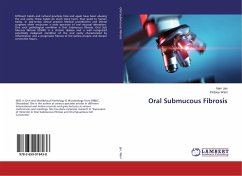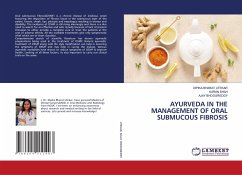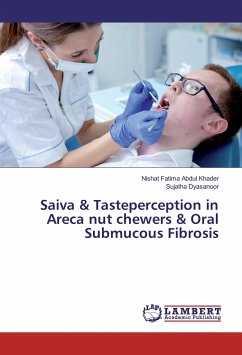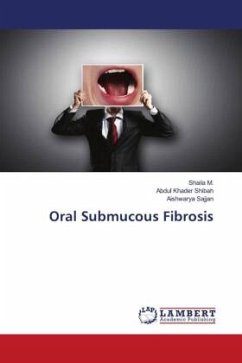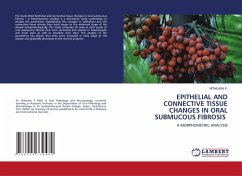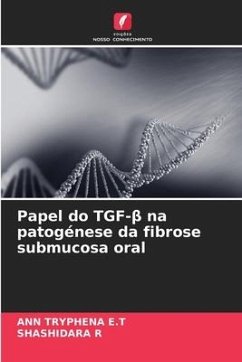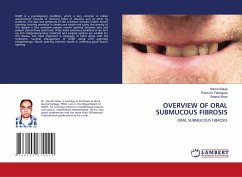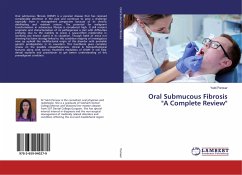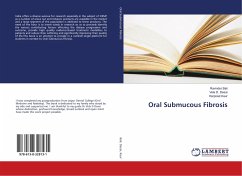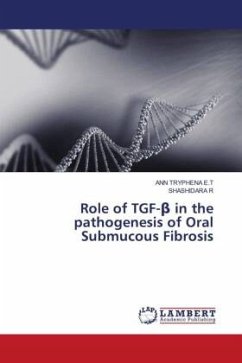
Role of TGF-¿ in the pathogenesis of Oral Submucous Fibrosis
Versandkostenfrei!
Versandfertig in 6-10 Tagen
29,99 €
inkl. MwSt.

PAYBACK Punkte
15 °P sammeln!
This textbook emphasises on the role of TGF-beta in the pathogenesis of Oral Submucous Fibrosis. Oral submucous fibrosis (OSMF) is a chronic disease and a well-recognized potentially malignant disorder of the oral cavity characterized by inflammation and a progressive fibrosis of the lamina propria and deeper connective tissues. Various epidemiological studies and histopathological effects on fibroblast and keratinocytes support the chewing of areca nut as one of the most important risk factors for OSMF. In OSMF there is excessive accumulation of collagen in the lamina propria. Increased colla...
This textbook emphasises on the role of TGF-beta in the pathogenesis of Oral Submucous Fibrosis. Oral submucous fibrosis (OSMF) is a chronic disease and a well-recognized potentially malignant disorder of the oral cavity characterized by inflammation and a progressive fibrosis of the lamina propria and deeper connective tissues. Various epidemiological studies and histopathological effects on fibroblast and keratinocytes support the chewing of areca nut as one of the most important risk factors for OSMF. In OSMF there is excessive accumulation of collagen in the lamina propria. Increased collagen production and decreased collagen degradation results in increased collagen deposition in the oral tissue, leading to fibrosis. TGF- beta is a key regulator of Extra- cellular matrix (ECM) assembly and remodelling. TGF-beta modulates both collagen production and decreased degradation through various mechanisms. OSMF can be managed by abstinence of habits, along with some possible interventions like anti-inflammatory or immunomodulatory drugs, by blocking transforming growth factor-beta (TGF-beta) action, use of copper chelators and collagenase activators.



